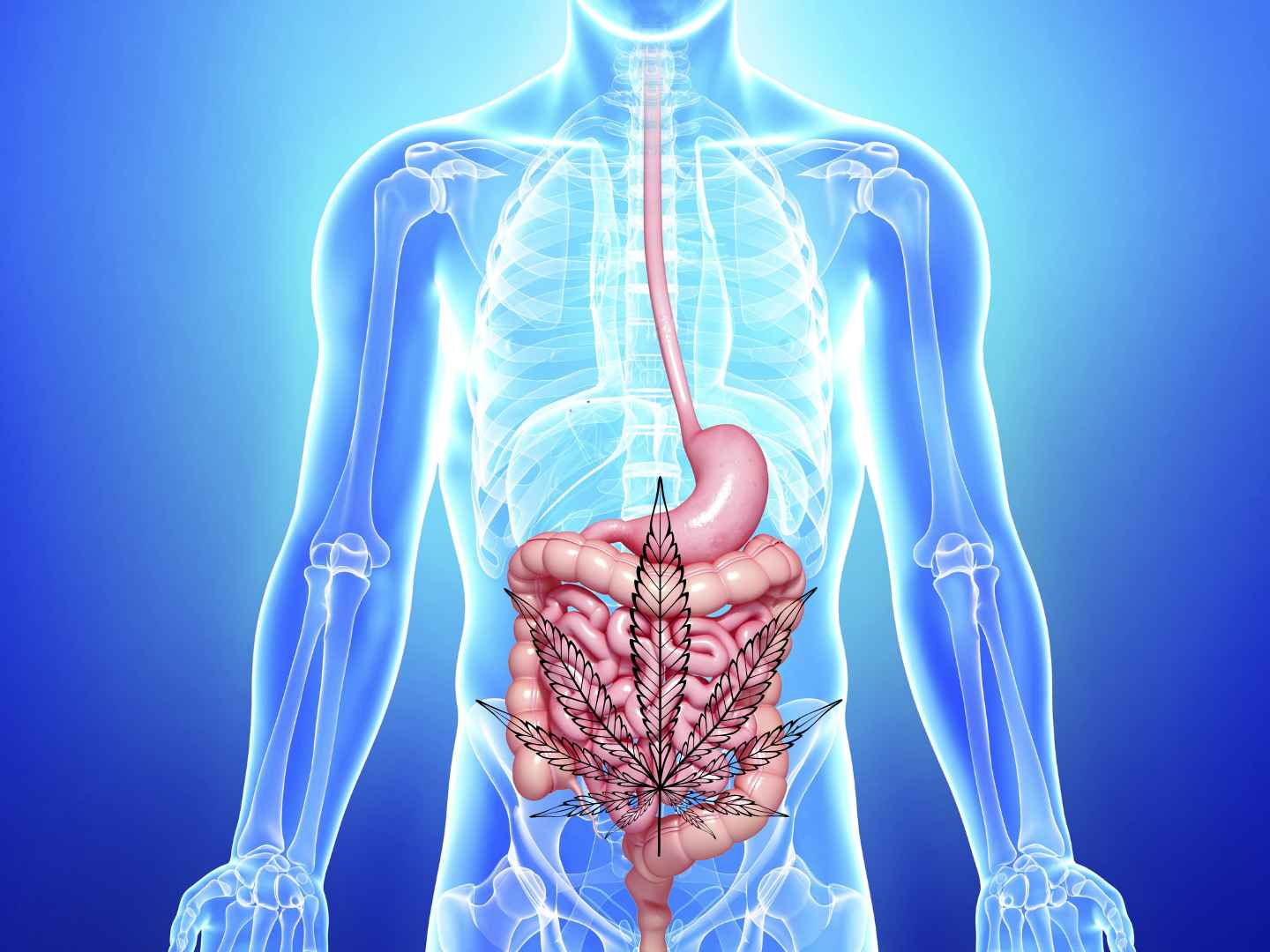How Does Cannabis Affect Digestion?

Cannabis might be famous for triggering the "munchies," but its relationship with the gastrointestinal system is much more nuanced. For centuries, cannabis has been used to alleviate symptoms like abdominal pain, diarrhea, nausea, and vomiting. Today, its popularity persists among those seeking relief from digestive disorders. In fact, surveys indicate that up to two-thirds of adults with inflammatory bowel disease (IBD) have tried cannabis to counter symptoms like pain, diarrhea, and weight loss.
IBD and Cannabis: A Historical Perspective
Inflammatory bowel disease (IBD) is an umbrella term for conditions like ulcerative colitis and Crohn’s disease, where the immune system mistakenly attacks the lining of the digestive tract, leading to chronic inflammation and tissue damage. According to the Centers for Disease Control and Prevention (CDC), about 3 million Americans have IBD.
Although the evidence supporting cannabis as a treatment for IBD or other gastrointestinal disorders remains limited, a growing body of research is shedding light on how our digestive health is influenced by the body’s endocannabinoid system (ECS).
Brain-Gut Highway: The ECS Connection
Why might cannabis play a role in treating gastrointestinal (GI) symptoms? The answer lies in the "brain-gut" connection, a communication line between the brain and the enteric nervous system, often referred to as the body's "second brain." This connection is influenced by the ECS, a complex network of endocannabinoids (cannabinoids produced by the body), cannabinoid receptors, and enzymes that produce or break down cannabinoids.
The ECS helps maintain body equilibrium by regulating functions such as appetite, metabolism, stress responses, inflammation, mood, and pain sensation. In the gut, the ECS reduces inflammation, regulates pain, and slows down food movement through the digestive system, potentially explaining why some people with IBD find relief with cannabis.
Psychological Stress and Digestive Health
Psychological stress often exacerbates digestive symptoms like abdominal pain. Research suggests the ECS may act as a bridge between the brain and the gut in these scenarios. For instance, stress can heighten sensitivity to pain in lab animals, but this effect can be mitigated with inhibitors that slow the breakdown of certain endocannabinoids.
Could ECS Dysfunction Lead to Digestive Disorders?
This raises the question: could a dysfunctional ECS be a factor in developing IBD or other digestive disorders like irritable bowel syndrome (IBS)? IBS affects about 40 million Americans, causing symptoms like pain, cramping, and diarrhea or constipation. Early-life stress, a risk factor for IBS, also impacts ECS development in animals.
People with IBS may carry specific gene variants that regulate ECS receptors and enzymes, linking these genes to gut contractions and sensation. The ECS's role in controlling inflammation is a key area of interest. Research in mice shows that raising endocannabinoid levels can prevent IBD-like disease, suggesting a potential genetic connection between the ECS and IBD.
Can Cannabinoids Treat GI Woes?
While lab findings are promising, the ultimate question is whether medical cannabis or cannabinoids like CBD can actually help patients. A 2019 study of adults with Crohn’s disease found that cannabis users were less likely to have complications like fistulas and abscesses. However, these studies do not prove cause and effect.
Clinical trials are needed to directly test cannabis products for easing digestive symptoms, but few have been conducted so far. A 2018 review by the Cochrane research network found only three clinical trials involving Crohn’s patients. None of the trials found that cannabis products improved symptom remission rates, although patients reported improvements in symptoms and quality of life.
A separate review of ulcerative colitis trials showed similar results: patients on cannabis reported greater symptom improvements or gains in quality of life despite no significant difference in remission rates.
The Bottom Line: A Promising Yet Uncertain Future
As it stands, there are intriguing clues that medical cannabis or CBD could help ease IBD symptoms. However, these insights are based on small, short-term studies. More research is needed to determine if cannabis can help with IBS or other digestive disorders. Currently, 39 states and Washington, D.C. have medical cannabis programs, with many authorizing its use for specific GI conditions or symptoms like nausea or chronic pain.
Depending on where you live, cannabis might be an option for additional symptom relief. At CannaLnx, we advocate for thorough consultation with your doctor to discuss the pros and cons. Stay informed and consider all options as you navigate your path to better digestive health.
Please note: You are not currently logged in. Only members can contribute comments. If you would like to contribute click the button below.
